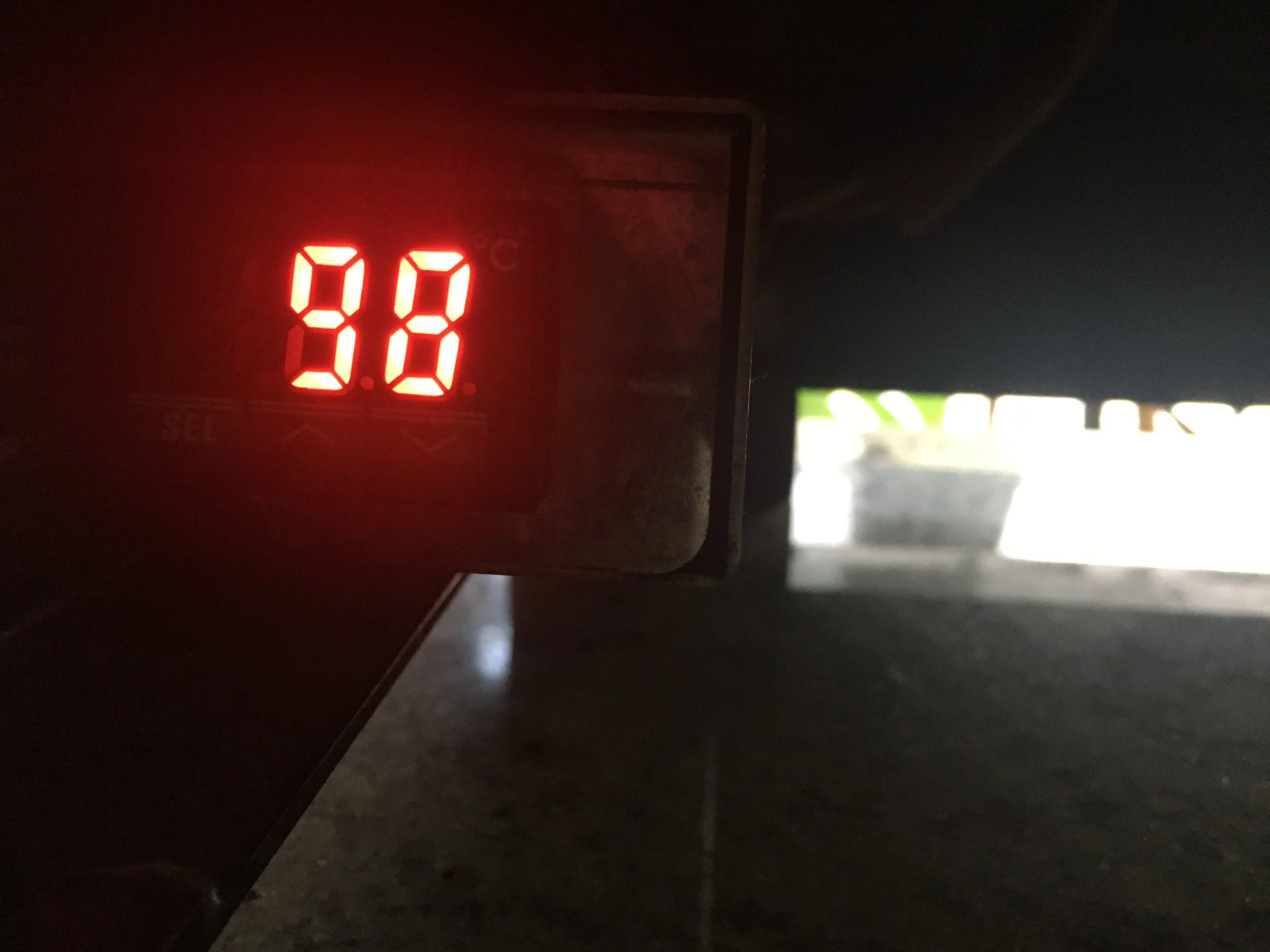#12 Too hot? Temperature.

This is the first post created out of popular demand. I get asked about water temperature A LOT. So Just a few quick pointers on water alongside my own take on temperature and its use in a creative capacity in brewing.
Generally Speaking the hotter the water the more compounds will be dissolved. Heat always has the effect of making more solute material available within the brew. Likewise Sucrose (sugars) have a higher boiling point than most organic acids present in coffee beans. So this has over the years been interpreted as “lower temps showcase acidity” while this is true at least in the taste profile of the finished cup. Its only half the story, Lower temps highlight acidity by disallowing the extraction of sucrose.
Highlighting sucrose then, or bringing out sugar if you prefer is all about getting that temperature as high as possible and then brewing with it, this will of course allow those sucrose levels to dissolve into the brew and not remain locked up in our grinds. However organic acids will be present in both low temp and high temp brewing as they were dissolving into our extraction from lower temperatures onwards. This means that while low temps will have a more present acid, higher temps will have a more balanced end cup profile by being brewed with both good quality acids (you do buy good quality coffee right?!) and a sucrose component.
Ok lets add another pesky little caveat to this. The info above applies to all coffee based on bean chemistry. The roast profile itself (how dark the coffee is) will also give us pointers on the kind of extraction we need for our coffee. Darker roasts have significantly less organic mass- it escapes up the roasters chimney. However then are more solute. To put it bluntly light roast have less material that will allow itself to dissolve: its still raw plant material.
Therefore to achieve higher extraction on light roasts we need higher temperatures. This is an interesting point in regards to our acidity situation because accepting this situation and brewing with a lower temperature is effectively double amplifying our acids, we get lower extractions and lower dissolution of the sweetness creating materials needed for balanced coffee.
With my coffee at Blue Sky, we promote omni roasts: they are effectively very well developed filter roasts, these suit higher extractions*. I take no credit here, they have very high quality flavour because we buy exceptional coffee beans. I strongly recommend higher water temperatures. We want that beautiful white-sugar sweetness to be fully apparent in the cup. Our Espresso machine is set at 98degrees and with our filter coffees we are rotating kettles throughout the brew so they are always just off boiling point.
*high extractions in this case refer to extraction over 21%, sometimes we even push coffees above 23%. Higher temp will of course allow high extraction. At the high end of the scale we are limited inly by dryness becoming present in the cup: a strong indicator you have over extracted.